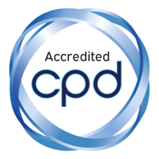Guidance map / NHS value and efficiency map
A tool promoting best practice in the efficient and effective use of resources to deliver high-quality sustainable healthcare
The HFMA has worked in partnership with NHS England to produce an NHS value and efficiency map which recognises the importance of a value-based approach to enabling the delivery of high-quality sustainable healthcare services.
This latest update of the map comes at a time when many individual organisations and wider systems have ended 2023/24 in financial deficit and are expecting further pressure on finances in 2024/25 against a backdrop of increasing operational pressures and competing priorities for use of limited resources. Delivering short-term financial recovery and long-term financial sustainability is at the forefront of senior leaders minds across the NHS in all four nations.
Therefore staff involved in influencing the use of resources and ensuring delivery of the sustainable healthcare services are looking for guidance and examples of best practice in this area. This map is a helpful tool with links to key documents all in one place.
In March 2024, Professor Sir Stephen Powis, national medical director of NHS England told delegates at a HFMA Costing for Value Institute event ‘I don't think there has been a more pressing time to drive value-based healthcare because if we can't continue to provide high quality care at lower cost then I think we are going to be, as a nation, in quite a difficult position. So, if you're not been a believer in value-based healthcare, in producing high quality at the lowest possible cost then you need to become a believer, because that is the way we're going to have to deal with the challenge we have ahead of us.’
This is not a new approach. The concept of value-based healthcare, linking health outcomes with the cost of delivering those outcomes was first developed by Professor Robert Kaplan and Professor Michael Porter of Harvard Business School in 2012. But as Sir Stephen Powis articulates, the need for its application within and across the NHS is greater now than ever.
In the short term, organisations and systems may talk about the efficiency targets and productivity gains required to contribute to the system-wide financial duty of achieving year-on-year break-even targets. Achieving longer term financial and operational sustainability requires a wider lens and is more likely to be framed as a ‘value-based approach’ but the principles are not that different.
Both short and long-term planning for sustainability require multi-disciplinary teams, including finance, clinicians and informatics, to work collaboratively. Both require teams to look equally for opportunities within their individual organisations and across organisational boundaries.
Furthermore, there is increasing recognition that systems must focus to improving population health and wellbeing, coupled with reducing health inequalities, but that these priorities are aligned with efficient and sustainable use of resources.
The map is split into four sections:
- Explanation of terms sets out those terms commonly used in relation to value and efficiency.
- Strategic framework provides links to relevant legislative and strategic guidance.
- Enablers includes resources aimed at helping organisations take a systematic approach to identifying and implementing a value-based approach. It includes cultural considerations, data requirements and methodologies that can be adopted.
- Opportunities focuses on core areas where there are opportunities to improve value and efficiency. It includes national guidance relating to these areas as well as sharing examples of best practice.
The map will be regularly updated. Please email [email protected] if you have suggestions for additions to the map.
Find out more about HFMA’s Healthcare Costing for Value Institute here.
Related content
The value masterclass shares examples of organisations and systems that have pursued a value-driven approach and the results they have achieved.
We are excited to bring you a fun packed Eastern Branch Conference in 2025 over three days.
